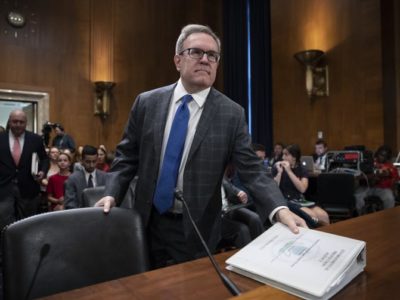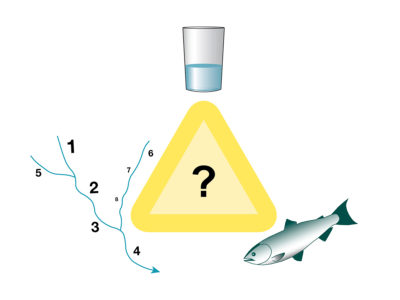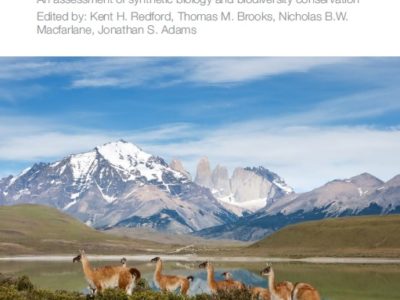Year: 2019
Register For June 20th Webinar On Increasing Energy Retrofits For Low-income Multifamily Properties
Expert panel with Energy Commissioner Andrew McAllister will discuss forthcoming Berkeley Law/UCLA Law report
California will need to double the energy efficiency of existing buildings by 2030 in order to achieve the goal of reducing greenhouse gas emissions 40 percent below 1990 levels by that year. While state leaders have adopted aggressive standards for efficiency in appliances and new construction, convincing property owners to undertake retrofits to improve energy …
CONTINUE READINGStanding and the Juliana v. United States Plaintiffs
Sympathetic Plaintiffs Also Help Legally
It’s not news that the 21 children (some now adults) who are suing the United States for the right to a safe and stable climate are sympathetic and telegenic. They are the primary reason Juliana v. United States has garnered so much attention, including a lengthy, highly positive segment on 60 Minutes. But the Juliana …
Continue reading “Standing and the Juliana v. United States Plaintiffs”
CONTINUE READINGA Motley Crew
The leadership at EPA has lots of experience, much of it in opposing environmental protection.
The best-known figure at EPA is Andrew Wheeler, the ex-coal lobbyist who is now the fox in charge of the henhouse. But it’s worth looking at some of the key remaining staff so we can see just what’s happened to EPA since Trump took office. Compared to some of Trump’s cabinet appointments, they all look …
Continue reading “A Motley Crew”
CONTINUE READINGGuest Blogger Michael Panfil: Supreme Court Declines to Hear New York and Illinois Clean Energy Cases Challenging Zero Emission Credits
Cert. Denials Have Significant Implications for Environment, Human Health, and Clean Energy
States are on the leading edge in crafting pathbreaking climate and clean energy policy. They rely on longstanding authority to do so to further their citizens’ welfare and wellbeing. That bedrock authority recently received important reaffirmation from the Supreme Court, which last month declined petitions for review in two cases with important implications for power …
CONTINUE READINGLaw Schools and the Environment: East Coast Version
Environmental law centers aren’t just a California thing. .
Readers of this blog probably have some sense of what the environmental law centers at UCLA and here at Berkeley are doing. There are too many environmental law centers to do a a comprehensive nationwide survey, and trying to pick a top-10 list would be completely subjective. To keep this post manageable, I’ll only discuss …
Continue reading “Law Schools and the Environment: East Coast Version”
CONTINUE READINGOf War and the Environment
War and environmental disruption are like evil twins, often found together.
A Vietnam-era slogan proclaimed that “war is not healthy for children and other living things.” And war is indeed a danger to the environment. But perhaps less obviously, environmental disruption also makes wars more likely. The slogan was appropriate for its time. The U.S. deforestation campaign in Southeast Asia caused environmental harm on an unprecedented …
Continue reading “Of War and the Environment”
CONTINUE READINGMaking Key Policy Decisions in Advance of Droughts
Part 6 in a Series on Improving California Water Rights Administration and Oversight for Future Droughts
It’s hard to respond effectively to a crisis when you don’t have clearly defined priorities. This is true for sudden-onset crises, like floods and wildfires, and also for slow-onset crises, like droughts. My recent posts have explored why the State Water Resources Control Board (Board) should develop a contingency-based framework to support its drought decisions …
Continue reading “Making Key Policy Decisions in Advance of Droughts”
CONTINUE READINGGoverning New Biotechnologies for Biodiversity Conservation
The fourth in a series examines how international institutions have responded
The previous two posts in this series described how and why genetically modified organisms (GMOs) could be introduced into wild populations, either “typically” modified ones that would transmit their altered genes ineffectively or those with “gene drives” whose changes would quickly propagate through the entire population. In both cases, their potential applications include helping conserve …
Continue reading “Governing New Biotechnologies for Biodiversity Conservation”
CONTINUE READINGThe Governance of Solar Geoengineering: Managing Climate Change in the Anthropocene
My book is now available!
I interrupt my ongoing blog series on new biotechnologies and their governance (1, 2, 3) to announce that my book The Governance of Solar Geoengineering Managing: Climate Change in the Anthropocene is available today from Cambridge University Press. The brief description is: Climate change is among the world’s most important problems, and solutions based on …
CONTINUE READINGEPA’s Magic Disappearance Trick
The Trump EPA has come up with a way to hide hundreds of deaths in plain view.
According to press reports, EPA is preparing to ignore possible deaths caused by concentrations of pollutants occurring below the national ambient air quality standards (NAAQS). This is a key issue in a lot of decisions about pollution reduction. For instance, there is no NAAQS for mercury, but pollution controls on mercury would, as a side …
Continue reading “EPA’s Magic Disappearance Trick”
CONTINUE READING










